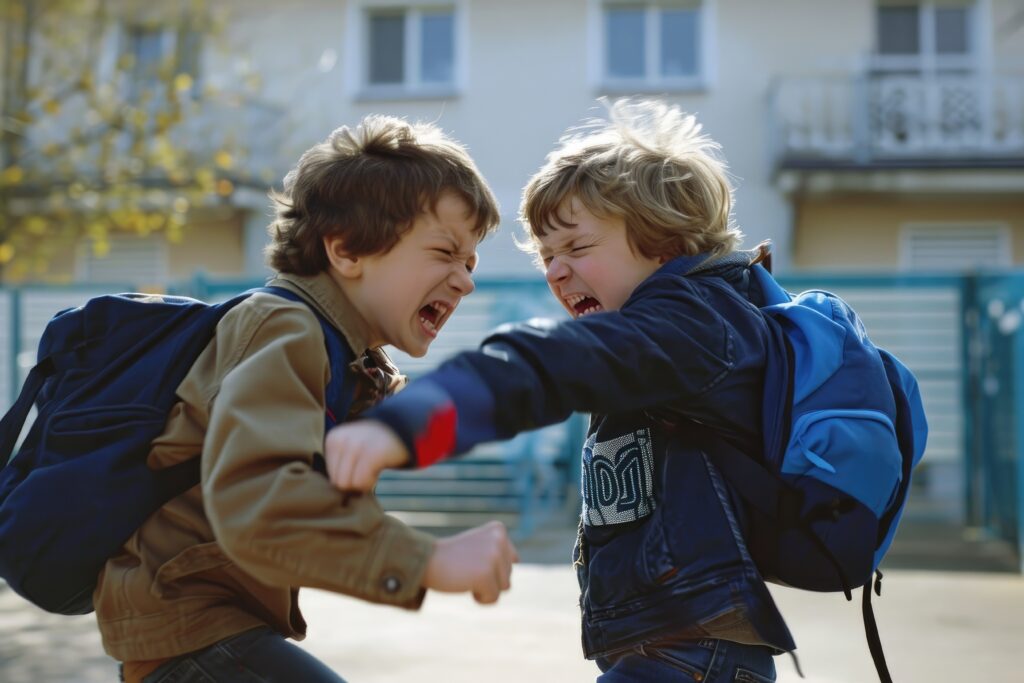
Learning to Let Go, Step Back, and Grow Together ❤️
We’ve all seen it — kids playing happily one day, and the next, there’s crying, shouting, “I’m never talking to him again!”
By evening? They’re laughing and sharing chocolates again. 🍫👧👦
But sometimes, the adults — us, the well-meaning parents — carry those little battles on our shoulders a little too seriously. And what could have been a small tiff between kids, turns into a permanent crack between neighbors.
Let’s talk about it. Why it happens. How we can avoid it. And how we can preserve the peace in our buildings and hearts. 🌸
🤹♀️ Why Kids Fight (and Make Up) So Easily
- They live in the moment
- They don’t hold grudges
- They express their anger, cry it out, and move on
- And most importantly: they’re still learning how to manage emotions
We, on the other hand, overthink, overanalyze, and often act out of ego or protectiveness. 😞
😕 When Parents Step In… and Stay In
Of course, we want to protect our kids. But sometimes:
- We believe only our child is right
- We speak harshly to another parent
- We stop talking to families we once celebrated festivals with
And slowly, the warm “hi hello” becomes a cold silence across balconies.
Meanwhile, the kids? They’ve long forgotten the fight and are back to planning cricket matches. 🏏
💡 So What Can We Do Differently?
Here are some real, practical tips for maintaining harmony:
1. Pause Before You React
🧘♀️ Don’t let your emotions talk for you. Take a deep breath and assess if the fight really needs adult intervention — or if it’s just a moment that will pass.
2. Talk to Your Child First
👂 Ask them what happened without jumping to conclusions. Teach them to express, listen, and forgive — they’re learning from how you respond.
3. Reach Out, Not React Out
📞 If you feel the need to speak to another parent, do it calmly and privately. Avoid blame — focus on understanding and finding a solution.
Say something like:
“Kids fight sometimes, I thought it’s best we check in — are you okay with how they’re handling it?”
4. Avoid Making It Public
📣 Don’t discuss the fight in front of other kids or neighbors. This adds fuel to the fire and builds sides.
5. Lead by Example
🫶 Apologize if needed. Forgive when possible. Don’t let a small incident between kids ruin years of friendship between families.
6. Build a Culture of Communication in Your Society
👨👩👧👦 Encourage group playtimes, conflict-resolution games, or occasional parents-kids gatherings. It helps build understanding and empathy.
💬 Final Thought
Children are innocent. Their fights are part of growing up. But when we, as adults, hold on to their tiny conflicts — we lose something far more valuable: community, warmth, and harmony in the place we call home.
So the next time your child comes running, saying, “He pushed me!”
Pause. Smile. And remember — they’ll probably be best friends again by tomorrow evening. Let’s make sure we adults don’t stay enemies for life. 💛
📝 Have you experienced something similar in your neighborhood? Share your thoughts or tips in the comments — let’s create kinder, calmer communities together.


